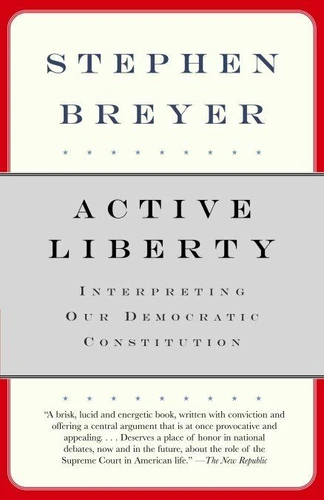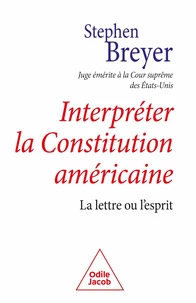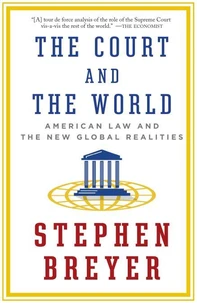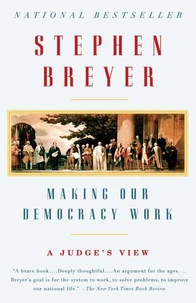Active Liberty. Interpreting Our Democratic Constitution
Par :Formats :
Disponible dans votre compte client Decitre ou Furet du Nord dès validation de votre commande. Le format ePub protégé est :
- Compatible avec une lecture sur My Vivlio (smartphone, tablette, ordinateur)
- Compatible avec une lecture sur liseuses Vivlio
- Pour les liseuses autres que Vivlio, vous devez utiliser le logiciel Adobe Digital Edition. Non compatible avec la lecture sur les liseuses Kindle, Remarkable et Sony
- Non compatible avec un achat hors France métropolitaine
 , qui est-ce ?
, qui est-ce ?Notre partenaire de plateforme de lecture numérique où vous retrouverez l'ensemble de vos ebooks gratuitement
Pour en savoir plus sur nos ebooks, consultez notre aide en ligne ici
- Nombre de pages176
- FormatePub
- ISBN978-0-307-42461-7
- EAN9780307424617
- Date de parution18/12/2007
- Protection num.Adobe DRM
- Taille270 Ko
- Infos supplémentairesepub
- ÉditeurVintage
Résumé
A brilliant new approach to the Constitution and courts of the United States by Supreme Court Justice Stephen Breyer. For Justice Breyer, the Constitution's primary role is to preserve and encourage what he calls "active liberty": citizen participation in shaping government and its laws. As this book argues, promoting active liberty requires judicial modesty and deference to Congress; it also means recognizing the changing needs and demands of the populace.
Indeed, the Constitution's lasting brilliance is that its principles may be adapted to cope with unanticipated situations, and Breyer makes a powerful case against treating it as a static guide intended for a world that is dead and gone. Using contemporary examples from federalism to privacy to affirmative action, this is a vital contribution to the ongoing debate over the role and power of our courts.
Indeed, the Constitution's lasting brilliance is that its principles may be adapted to cope with unanticipated situations, and Breyer makes a powerful case against treating it as a static guide intended for a world that is dead and gone. Using contemporary examples from federalism to privacy to affirmative action, this is a vital contribution to the ongoing debate over the role and power of our courts.
A brilliant new approach to the Constitution and courts of the United States by Supreme Court Justice Stephen Breyer. For Justice Breyer, the Constitution's primary role is to preserve and encourage what he calls "active liberty": citizen participation in shaping government and its laws. As this book argues, promoting active liberty requires judicial modesty and deference to Congress; it also means recognizing the changing needs and demands of the populace.
Indeed, the Constitution's lasting brilliance is that its principles may be adapted to cope with unanticipated situations, and Breyer makes a powerful case against treating it as a static guide intended for a world that is dead and gone. Using contemporary examples from federalism to privacy to affirmative action, this is a vital contribution to the ongoing debate over the role and power of our courts.
Indeed, the Constitution's lasting brilliance is that its principles may be adapted to cope with unanticipated situations, and Breyer makes a powerful case against treating it as a static guide intended for a world that is dead and gone. Using contemporary examples from federalism to privacy to affirmative action, this is a vital contribution to the ongoing debate over the role and power of our courts.



















